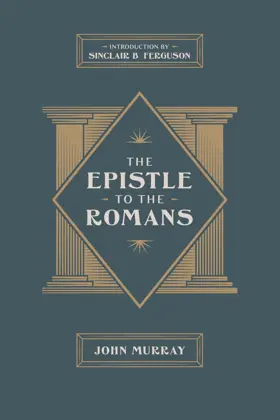

The Epistle to the Romans
Pages
688
Publisher
Westminster Seminary Press
Published
10/31/2022
ISBN-13
9781955859035
Careful exegetical attention, a robust knowledge of Reformed systematic theology, and an acute awareness of our spiritual needs all mark this staggering work of profound scholarship. In stunning detail, Murray leads us through the traditional landscape of a Roman’s commentary (authorship, purpose, structure, verse-by-verse exposition), engaging with leading scholars and theologians of his time. But he adds to this discussion his own depth of understanding based on years of teaching and studying the text. In this volume, Murray long-debated issues that remain relevant to the church: the nature of justification, the relationship between Adam and Christ (Rom. 5), and the identity of the “weak” and the “strong” (Rom. 14). Now offered to readers for the first time in a single-volume format with updated indexes, The Epistle to the Romans features a new and and instructive introduction by Sinclair B. Ferguson that illuminates the context of Murray's timeless commentary with insight into how and why it came to be a landmark volume both academically and pastorally. The Epistle to the Romans is sure to find space once again on the shelf of every pastor, teacher, and theologian.
The Epistle to the Romans was first published in 1959 as part of the New International Commentary on the New Testament series.
The Epistle to the Romans was first published in 1959 as part of the New International Commentary on the New Testament series.
Collections
This book appears in the following featured collections.
- Recommended New Testament Commentaries for Evangelical Pastors by Thomas R. Schreiner
Reviews
Overall, then, if you have never read this commentary, and are broadly reformed or evangelical, this will do you good to own and read. If you are a preacher, Murray offers a pleasant balance of intelligent theological interpretation, and exegetical sensitivity, and this without the intervening years of scholarship (I’d suggest Moo, or Garland’s recent Tyndale Commentary, as ways to brush up on the state of scholarship since then) getting in the way of Murray’s patient, warm and encouraging writing. If I ever have the privilege of preaching Romans, Murray will be on the desk – and in other work on parts large and small of this epistle, I will be sure to turn to it. It is only it’s historic nature that prevents it from being a 5/5 commentary for me – though, as I alluded to, the physical production and editorial decisions are a 5/5 for me!
[Full Review]
